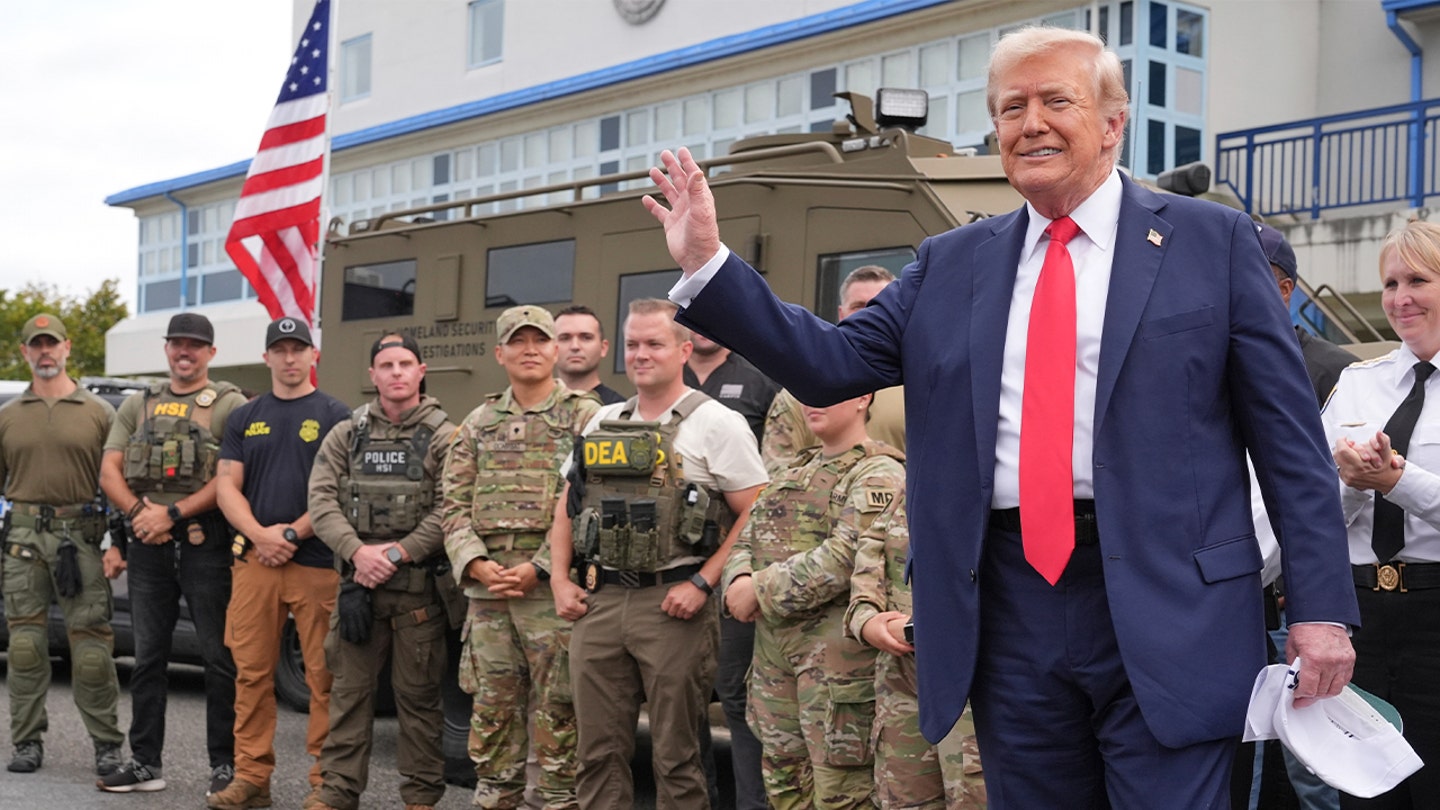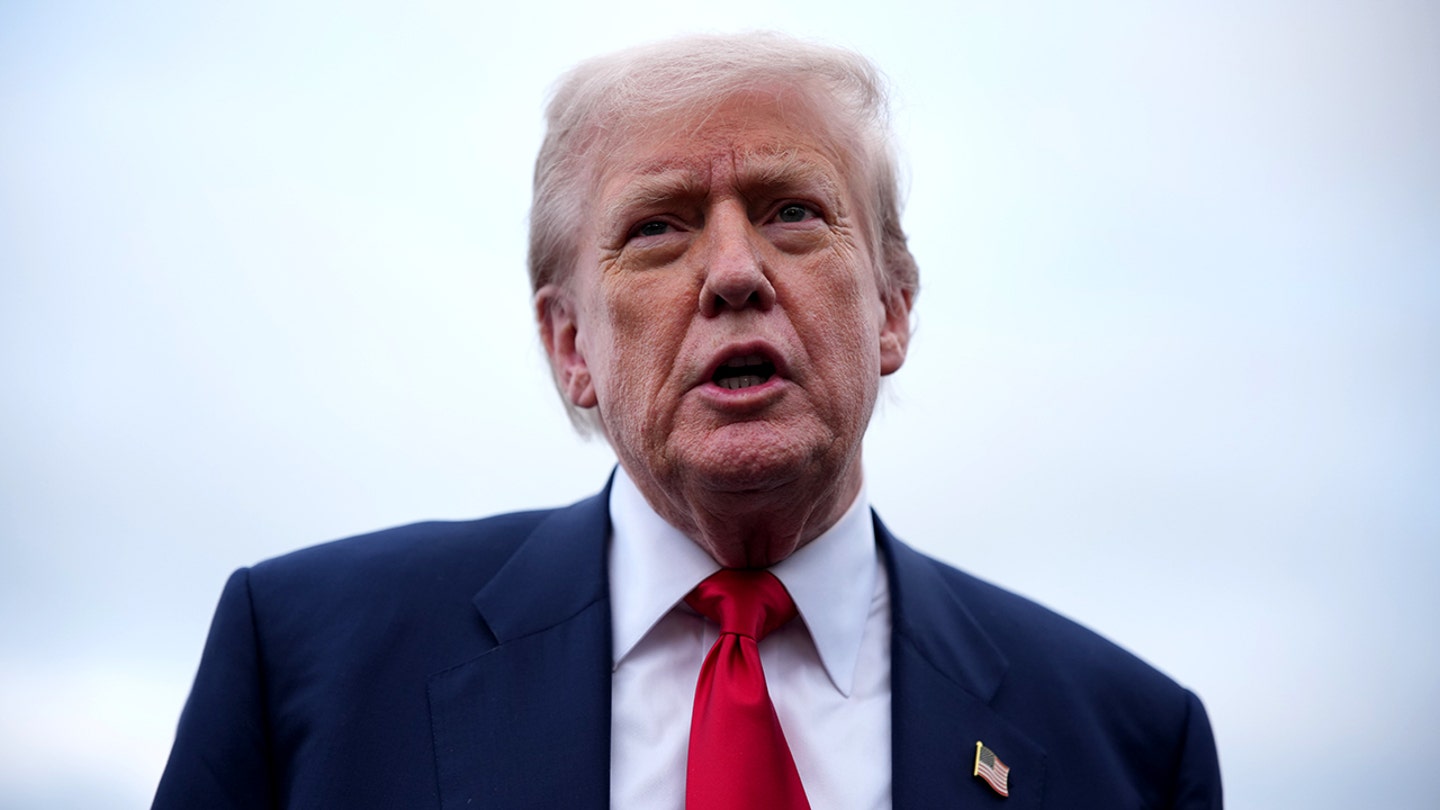
Trump, House GOP allies eye pathways to extend White House crime crackdown in DC
Entities mentioned:
- Donald Trump: Power, Control, Legacy
- House Republicans: Loyalty, Control, Security
- White House: Power, Control, Influence
- Rep. Andy Ogles: Security, Duty, Influence
- Rep. Anna Paulina Luna: Security, Control, Duty
- Rep. Andy Biggs: Security, Control, Influence
- Democrats: Righteousness, Freedom, Moral outrage
Article Assessment:
Credibility Score: 65/100
Bias Rating: 70/100 (Lean Right)
Sentiment Score: 55/100
Authoritarianism Risk: 75/100 (Authoritarian Tendencies)
Bias Analysis:
The article leans right, primarily quoting Republican sources and framing the issue from their perspective. While it mentions Democratic opposition, it doesn't provide equal space or depth to counter-arguments.
Key metric: Crime Rate in Washington D.C.
As a social scientist, I analyze that this article highlights a significant shift in the balance of power between federal and local government in Washington D.C. The proposed legislation aims to extend the President's authority over D.C.'s police force, potentially undermining local autonomy. This move could have far-reaching implications for federalism and urban governance in the U.S. The article suggests a decrease in homicides since federal intervention, but this claim requires further verification. The broader impact on crime rates, community-police relations, and local governance structures needs comprehensive study. This situation raises important questions about the limits of federal power, the rights of D.C. residents, and the potential precedent for federal intervention in other cities.

Death penalty could return in nation's capital under Trump’s DC crime crackdown
Entities mentioned:
- Donald Trump: Control, Power, Righteousness
- U.S. Supreme Court: Justice, Duty, Influence
- D.C. Council: Justice, Duty, Unity
- Death Penalty Information Center: Justice, Duty, Curiosity
- U.S. Attorney Jeanine Pirro: Justice, Duty, Professional pride
- Metropolitan Police Department: Duty, Security, Professional pride
- D.C. National Guard: Duty, Security, Loyalty
Article Assessment:
Credibility Score: 70/100
Bias Rating: 65/100 (Lean Right)
Sentiment Score: 35/100
Authoritarianism Risk: 75/100 (Authoritarian Tendencies)
Bias Analysis:
The article leans right, primarily due to its focus on Trump's perspective and actions without significant counterbalancing viewpoints. It presents the administration's claims about crime reduction uncritically, without exploring alternative explanations or critiques.
Key metric: Crime Rate in Washington D.C.
As a social scientist, I analyze that this article presents a significant shift in criminal justice policy for Washington D.C., with potential far-reaching implications. The proposed reintroduction of the death penalty, coupled with increased military and federal law enforcement presence, represents a dramatic escalation in the approach to crime prevention and punishment. This policy shift could potentially impact the crime rate in several ways: it may serve as a deterrent for serious crimes, but it could also escalate tensions between law enforcement and communities, potentially leading to increased unrest. The use of military forces for domestic law enforcement raises questions about the balance between security and civil liberties. The effectiveness of such measures on long-term crime reduction is debatable, as research on the deterrent effect of the death penalty is inconclusive. This approach also diverges from recent trends in criminal justice reform focusing on rehabilitation and addressing root causes of crime.

Capitol Hill prepares for high-stakes battle over Trump crime package, DC police authority
Entities mentioned:
- Donald Trump: Power, Control, Legacy
- Lindsey Graham: Loyalty, Influence, Professional pride
- Pam Bondi: Duty, Professional pride, Loyalty
- Katie Britt: Professional pride, Duty, Influence
- Chuck Schumer: Moral outrage, Opposition, Power
- Dick Durbin: Moral outrage, Opposition, Justice
- Republicans: Loyalty, Power, Control
- Democrats: Opposition, Justice, Freedom
Article Assessment:
Credibility Score: 70/100
Bias Rating: 55/100 (Center)
Sentiment Score: 35/100
Authoritarianism Risk: 65/100 (Authoritarian Tendencies)
Bias Analysis:
The article presents views from both Republican and Democratic sides, but gives slightly more space to Republican perspectives. It includes direct quotes from both parties, maintaining a relatively balanced approach despite the controversial nature of the topic.
Key metric: Crime Rate in Washington D.C.
As a social scientist, I analyze that this article highlights a growing political conflict over control of Washington D.C.'s law enforcement. President Trump's proposed crime package and desire to extend control over D.C. police signify a push for federal intervention in local affairs, framed as a necessary step to reduce crime. This move is supported by Republicans but strongly opposed by Democrats, who view it as an overreach of executive power. The conflict reflects broader tensions between federal and local authority, as well as partisan divides on approaches to crime and governance. The potential use of emergency powers to bypass Congress further escalates the situation, raising concerns about the balance of power and democratic processes. This conflict could significantly impact D.C.'s crime rates and policing practices, depending on which approach prevails.